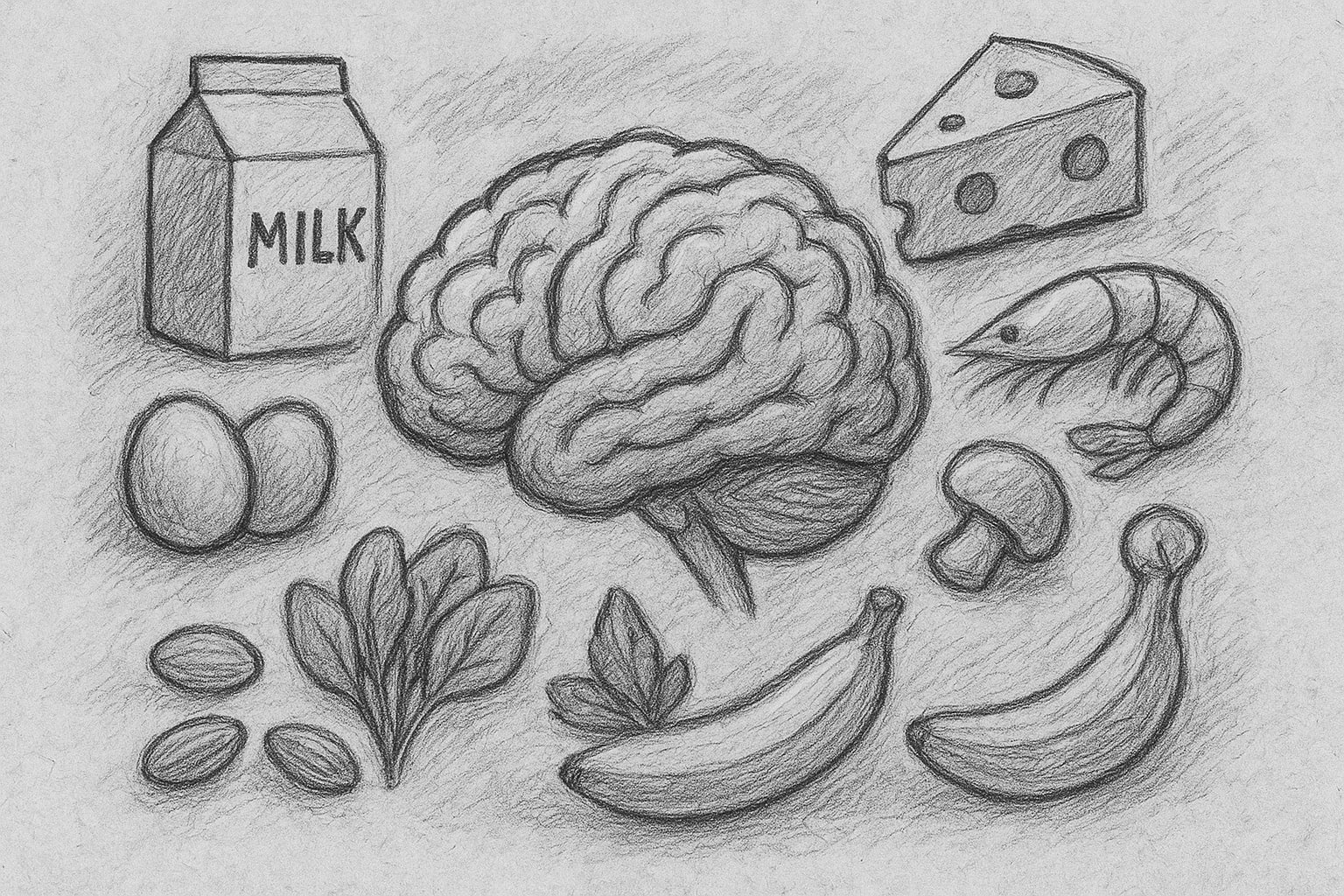Lesson made on October 8, 2025
Download Printable Lesson (PDF)
Download Printable Answer Key (PDF)
Reading Lesson:
A new study from Japan suggests that eating foods rich in vitamin B2, also known as riboflavin, might lower a person’s chances of developing dementia. Dementia is a condition that affects memory and thinking skills, especially in elderly people. Researchers followed over 4,000 adults between the ages of 40 and 69 for about 15 years to see how their diets might relate to brain health.
The scientists discovered that people who ate the most riboflavin had about half the risk of developing serious dementia compared to those who ate the least. They also noticed that a higher intake of vitamin B6 and folate (another B vitamin) seemed to help, although the link was not as strong. However, vitamin B12 didn’t appear to make much difference in this study.
It’s important to remember that the research only shows a connection; it doesn’t prove that vitamin B2 directly prevents dementia. The study also didn’t include vitamin pills, so it’s unclear if taking pills would have the same effect.
Even so, the results support the idea that a healthy, balanced diet is good for the brain. Foods high in riboflavin include milk, yogurt, eggs, lean meats, fish, mushrooms, almonds, and spinach. B6 and folate are found in poultry, salmon, bananas, beans, leafy greens, and fortified grains. Experts say that rather than focusing on a single vitamin, people should try to eat a variety of nutritious foods to help protect their brains as they age.
Source: European Journal of Clinical Nutrition (2025)
Comprehension Quiz:
Speaking and Writing Activities:
– Discuss these questions with a partner or a small group.
– Choose one topic and write a response to it. Show your writing to a classmate or teacher.
- Have you eaten any foods today that contain B vitamins?
2. Why do many people find it hard to eat a balanced diet even if they know it’s good for them?
3. Imagine you are an elderly person. What kinds of things would you do to keep your memory strong?
More Reading Practice:
B Vitamins
B vitamins are a group of nutrients that help your body stay healthy and full of energy. They work together to turn the food you eat (like bread, meat, and vegetables) into energy your body can use. B vitamins also help keep your brain, skin, and blood healthy.
Each B vitamin has a special job. Some help your body make red blood cells, which carry oxygen through your body. Others help your nerves work properly or help your body use fats and proteins from food.
You can find B vitamins in many foods, such as eggs, milk, fish, meat, leafy greens, beans, and whole grains. Because they are water-soluble, your body does not store them for long, so you need to eat foods with B vitamins regularly.
Having enough B vitamins helps you feel alert and strong. Not getting enough can make you feel tired, weak, or forgetful.
Dementia
Dementia is a condition that affects the brain. It makes it harder for a person to remember things, think clearly, or make good decisions. People with dementia may forget names, dates, or where they put things. They might have trouble speaking, understanding others, or doing daily activities like cooking or getting dressed.
Dementia is not a normal part of aging, even though it is more common in older adults. It happens when brain cells are damaged and cannot communicate well with each other. Over time, this damage gets worse, and the person needs more help from others.
There are different types of dementia, such as Alzheimer’s disease, but they all affect memory and thinking. Although there is no cure yet, doctors and caregivers can help people with dementia live more comfortably and stay active for as long as possible.
ESL listening exercise about healthy eating habits
ESL lesson about Neuralink brain chips
ESL lesson about an unusual type of surgery that can help blind people

